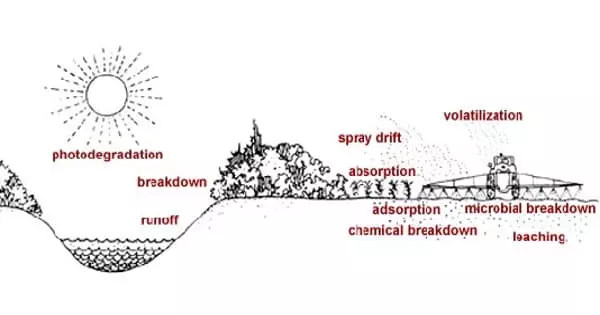Betalains are a group of plant pigments that give certain fruits and vegetables their distinctive red-violet (betacyanin) or yellow (betaxanthin) color. These naturally occurring, nitrogen-containing, water-soluble pigments are frequently utilized as food coloring ingredients.
The powerful antioxidant potential of betalains has recently come to light thanks to research findings, making them ideal to manufacture healthy diets and treat a variety of disorders.
Currently, only higher fungi and plants in the order Caryophyllales can generate betalains. In order to increase the production and scalability of these pigments, metabolic engineering has been examined as a way to genetically modify cultivable non-Caryophyllales plants.
Although transgenic betalain-accumulating plants have been created over the years, their potential for providing dietary resources for medical use has not yet been fully investigated.
To address this gap, a collaborative research team from Tokyo University of Science (TUS) and Iwate Biotechnology Research Center, Japan, led by Professor Gen-ichiro Arimura from TUS, attempted to genetically modify potato and tomato plants to produce betacyanin. They wanted to determine whether tomatoes and potatoes that produce betacyanin could treat mouse models of colitis and macrophages that cause inflammation. Their findings were published in Biotechnology & Bioengineering.
Discussing the results of this study, Prof. Arimura says, “We successfully engineered potato tubers and tomato fruits to co-express betacyanin biosynthesis genes (genes for CYP76AD1 from Beta vulgaris, DOD (DOPA 4,5-dioxygenase) and 5GT (cyclo-DOPA 5-O-glucosyltransferase) from Mirabilis jalapa) under the control of suitable promoters. This enhanced the endogenous accumulation of betanin and isobetanin two common types of betacyanin in these transgenic vegetables. The accumulation of these pigments made them appear dark red in color upon maturation, as compared to their wild-type counterparts.”
Tomatoes genetically engineered to produce betacyanins were found to have substantial health promoting effects. Although natural plant sources of betalains such as beetroots exist, these pigments demonstrate poor stability in high temperatures and extreme pH. This indicates that betacyanin producing transgenic tomato lines are more likely to be effective as health foods when ingested in their raw state.
Professor Gen-ichiro Arimura
The team further examined the therapeutic effectiveness of these transgenic veggies in macrophage-like cells (RAW264.7), after immune response stimulation by lipopolysaccharides (LPS), because macrophages play a significant role in a number of inflammatory illnesses. They noticed that the transgenic tomato fruit extracts had stronger anti-inflammatory effects than their wild-type counterparts.
This was attributed to a decrease in the LPS-stimulated transcription of the proinflammatory cytokine gene a Tnf-α gene, within transgenic cells.
“These findings were in line with the anti-inflammatory effects of transgenic tomato that we observed in the intestines of murine models with dextran sulfate sodium (DSS)-induced colitis. A marked improvement in their body weight loss and disease activity index was observed through the suppression of the DSS-stimulated transcription of proinflammatory genes genes for Tnf-α, Il6 and Cox-2,” adds Prof. Arimura, while discussing the results derived from the other experiment in mice.
Betacyanin’s additive and synergistic effects with naturally occurring fruit components (such the lycopene in tomato) also contributed to the amelioration of colitis in mouse models.
Even though transgenic potatoes produced a high amount of betanin and isobetanin, significant anti-inflammatory benefits were not seen with transgenic tomato extracts at 100–1000-fold dilutions.
Although it hasn’t been proven, it is hypothesized that this is caused by the presence of unidentified antagonists in transgenic potatoes that counteract betacyanin’s anti-inflammatory effects.
“Tomatoes genetically engineered to produce betacyanins were found to have substantial health promoting effects. Although natural plant sources of betalains such as beetroots exist, these pigments demonstrate poor stability in high temperatures and extreme pH. This indicates that betacyanin producing transgenic tomato lines are more likely to be effective as health foods when ingested in their raw state,” summarizes Prof. Arimura.
He further adds, “Although there is no commercial cultivation of edible genetically modified crops in Japan, we expect that their applications as health foods through production in enclosed plant factories and other facilities will lead to the widespread use of recombinant plants in Japan.”
















